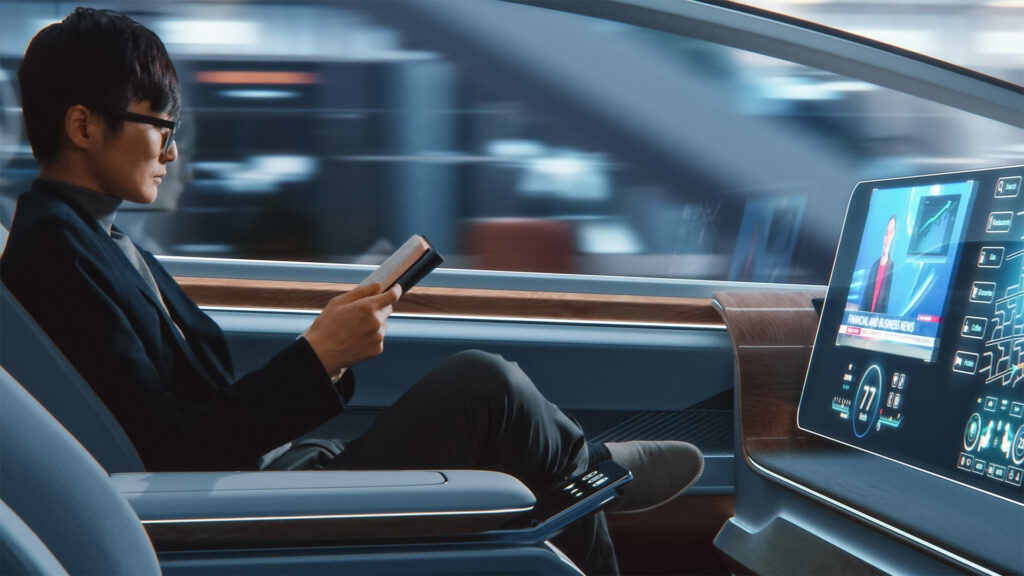Good news for the Volkswagen Group when it comes to sales revenue, order books and the production of commercial vehicles. However, that has to balanced out by a relative disaster in the company's software division that has seen unprecedented redundancies and the start of a completely new approach.
Volkswagen Group announced that it has experienced a 42% growth in sales of battery electric vehicles (BEVs), which now account for around 7% of the company's total deliveries. The Group's sales revenue in Q1 increased by 22% to €76 billion, primarily due to increased sales volumes in North America and Europe.
Operating profit before valuation effects from commodity hedging increased by 35% to €7.1 billion, and the operating margin stood at 9.3%, which was above the forecast target corridor for the Volkswagen Group of 7.5% to 8.5%. However, operating profit fell from €8.3 billion to €5.7 billion Y-o-Y due to negative non-cash effects, particularly from commodity hedging (which had previously proven profitable). Furthermore, working capital suffered from disruptions in supply chains, and net liquidity in the automotive business decreased to €38.4 billion in connection with the Porsche AG IPO.
The Group's BEV strategy led to a 42% YoY increase in BEV deliveries in Q1 to 141,000 vehicles, representing approximately 7% of total deliveries. The company continues to improve on its powertrain and battery technology – and the production of battery packs from its plant in Mladá Boleslav (Central Bohemian Region of the Czech Republic) has now passed half a million units for the group.
The advanced MEB (Modular Electrification Toolkit) battery systems are important components fitted in MEB vehicles and models with a plug-in hybrid drivetrain across VW Group brands. Škoda is investing heavily in the transformation of its facilities and development, digitalisation and further education of its workforce, with the company already upskilling more than 23,000 employees to prepare for the demands of e-mobility.
All good news. And that good news continues through to its commercial vehicles.
Traton (Volkswagen Truck & Bus) reported an increase in unit sales by 25%, with overall sales revenues up 31%, driven by strong volume growth, positive price-mix effects, and vehicle services. Operating margin was 8% due to better capacity utilization and positive price/mix compensating for higher input costs, and net cash flow recorded a strong increase despite a further build-up of working capital. Because of this solid start. This unit has already started the long transition to electrification.
However, positive news about B2C and Traton has to be balanced against the enormous upheaval in Cariad (the VW software group). It has encountered significant issues, leading to the firing of its entire executive board except for one person. The unit had exceeded its budget and failed to meet goals, contributing to the departure of former VW Group CEO Herbert Diess – and his replacement by Oliver Blume.
So key is software and Ai to the future of electric vehicles, that the issues created by previous teams mean that there has been a delay on the launch & production of both the Porsche e-Macan and Audi Q6 e-tron. The consequential loss of momentum has created a delay of up to 4 years in the planned launch of the company's new software – originally intended to enable Level 4 autonomous driving by 2026.
With those issues in mind, battery production looks to be the highpoint of VW's financials so far. It's MEB vehicles use the 55 to 82 kWh units being produced in the Czech Republic and the new production lines have flexibility to move output between 16 cells and 24 cells – along with appropriate integrated cooling and a battery management systems as well as the necessary electrical connections. After investing €130m into this plant, there is a second one already scheduled to be opened in 2023 which will significantly increase output.
In North America, the Group is ramping up its global battery business with the Group’s first overseas battery cell factory in Canada. New BEV models like the ID. Buzz will put further demand on the battery business – especially with longer range versions likely to launch. Energised by Biden's stance on the environment, the Group is also pushing its ‘Electrify America Boost Plan' – aiming to double the number of charging points by 2026 to 8,000. By electrifying the iconic ‘Scout‘ brand, the Group is entering the highly attractive truck and rugged SUVs segment. Therefore, plans to expand US charging capabilities are complemented by those to build a factory capable of producing 200,000 EVs a year in South Carolina.
Software CEO Dirk Hilgenberg has been replaced by Peter Bosch. In addition to the software division, it looks like Bosch will also take over finance, purchasing and IT. Autonomous driving is all about Ai. In turn, Ai is all about deep learning. The idea that a system runs over and over – constantly improving its own performance and indicating to the development team where improvements need to be made and what features/sensor may need to be added. Giving global leaders like Tesla an additional 4 years headstart will create many additional challenges for VW. Given the rate of improvement in Ai systems and the amount of funding that Musk & Co are investing in this whole area, it will be a Herculean task for Bosch to make things right.
